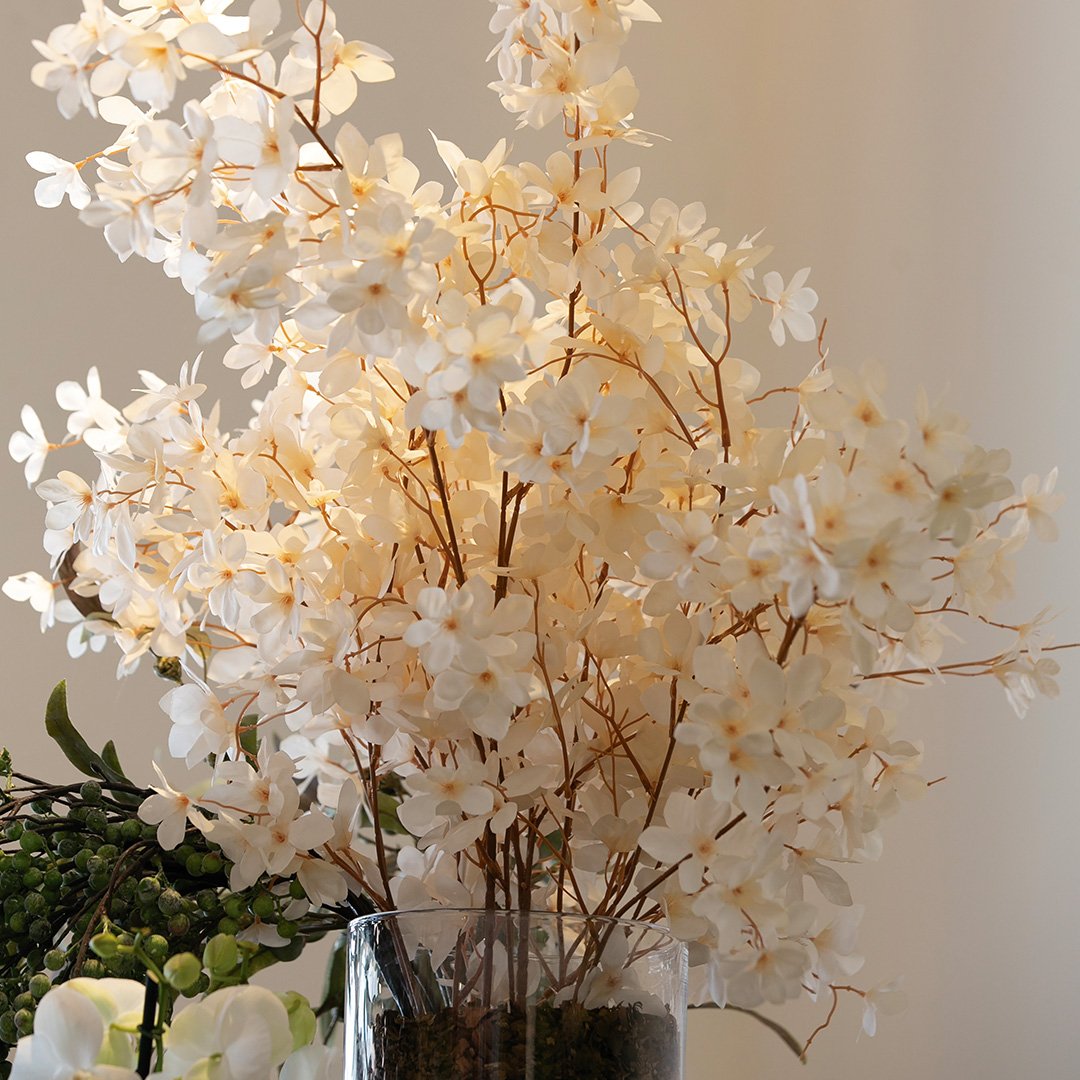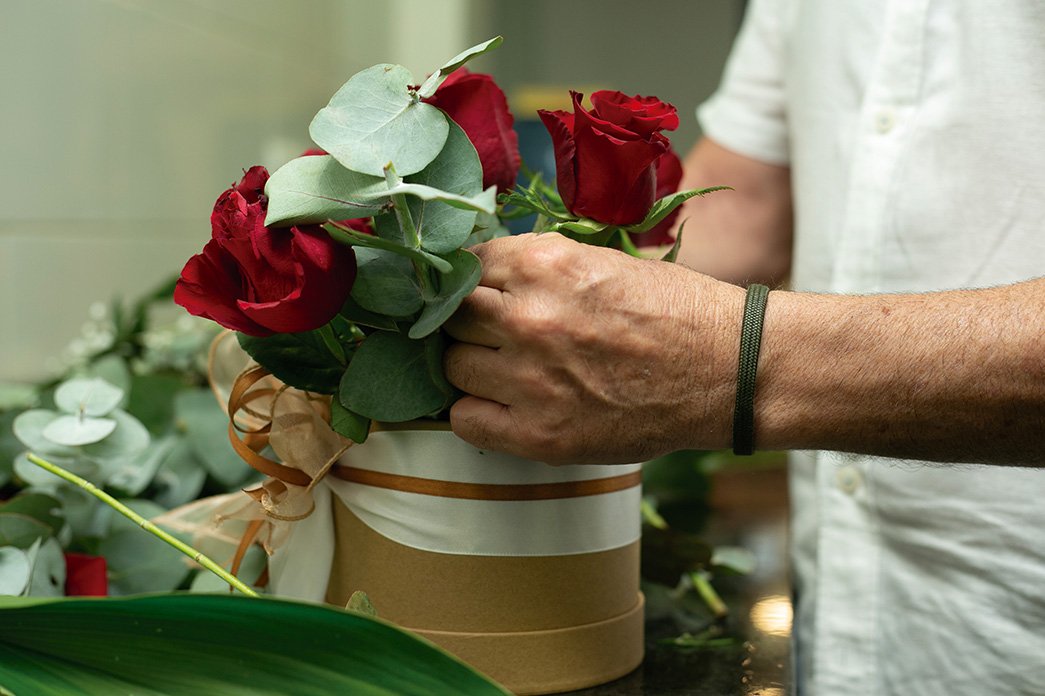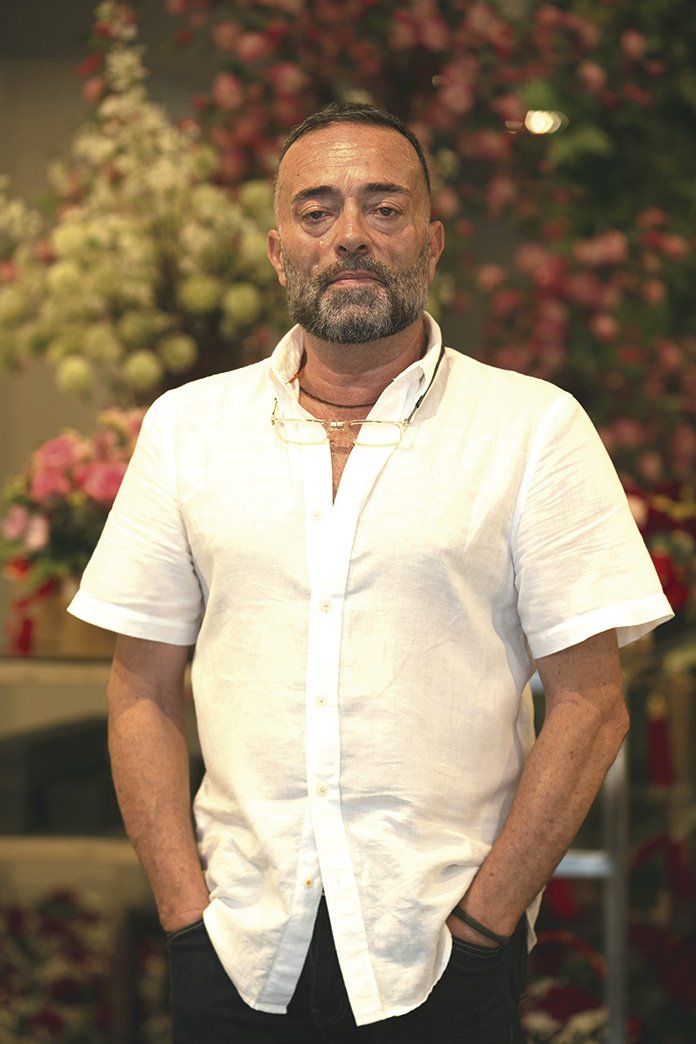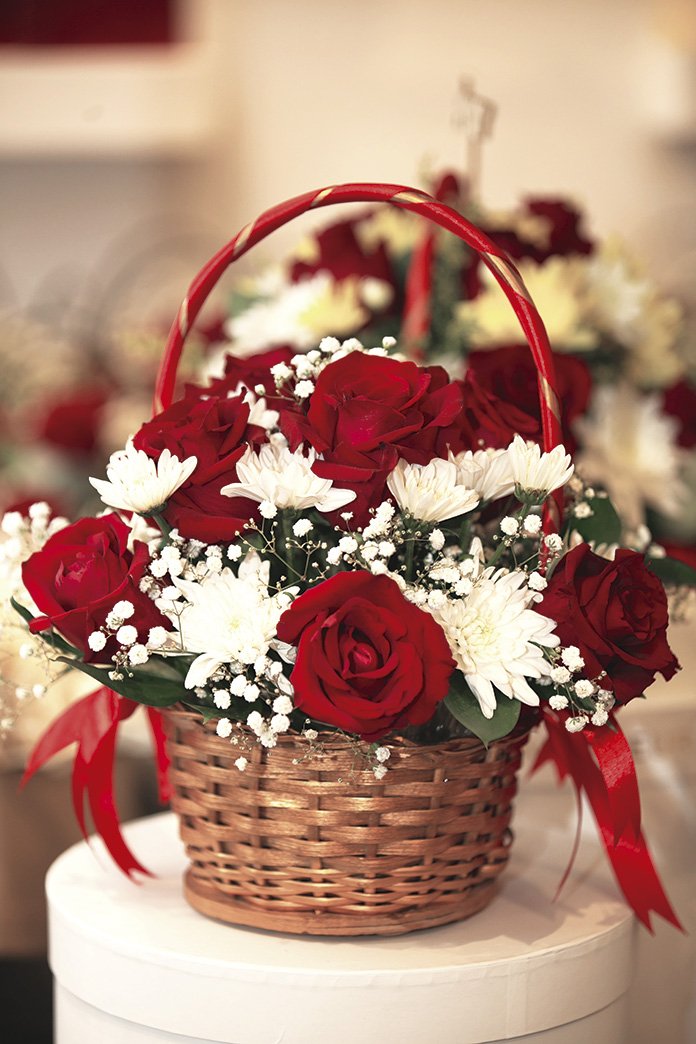
It was on World Theatre Day that Flor Portugal came into being, in 2001, the result of an ambition of the owner José Piano, who had longed to create his own florist’s. Along the way, there were many experiences in different areas, which eventually led him to the world of flowers. «I'm an interior designer, but I’ve always had aesthetics in my life. Being a florist was a fortunate accident. I wanted to make a flower for everyone with my personal stamp, and that’s just what happened,» José explains.
Ten years had passed since his dream came true and, indeed, business was booming in Portugal, with shops open to the public in Lisbon, Oporto and Madeira. But life was already beginning to show signs of change: «At the time I was already coming to do many events in Angola,» says José Piano. It was only a matter of time before the crisis exploded in 2009. With bills to pay, he urgently had to rethink the whole structure of the business and the most sensible thing to do was to close the physical stores and focus exclusively on online business. What the owner of Flor Portugal could never have imagined was that, in 2012, he would already be living in Angola, with his business imbued with African culture, under the name Flor Angola. A bold decision, which he recalls with pride: «At the invitation of my current partners, I made the decision to replicate the Portuguese project in Angola, steering it towards selling to the public».
A new reality needed to be established and José set off to discover it, coming across a vast market, and it didn’t take long to notice the problem of democratisation it presented. The project then began by smoothing out a few rough edges, committing itself to respond to a broader target audience than was ususal in Angola. Not everything was a bed of roses. José Piano admits to having found it difficult to adapt his business to the African country, which at the time had a rather eclectic industry. «Flowers were seen as an absolute luxury and we survived from exports, » the CEO of Flor Angola reveals.
Ten years had passed since his dream came true and, indeed, business was booming in Portugal, with shops open to the public in Lisbon, Oporto and Madeira. But life was already beginning to show signs of change: «At the time I was already coming to do many events in Angola,» says José Piano. It was only a matter of time before the crisis exploded in 2009. With bills to pay, he urgently had to rethink the whole structure of the business and the most sensible thing to do was to close the physical stores and focus exclusively on online business. What the owner of Flor Portugal could never have imagined was that, in 2012, he would already be living in Angola, with his business imbued with African culture, under the name Flor Angola. A bold decision, which he recalls with pride: «At the invitation of my current partners, I made the decision to replicate the Portuguese project in Angola, steering it towards selling to the public».
A new reality needed to be established and José set off to discover it, coming across a vast market, and it didn’t take long to notice the problem of democratisation it presented. The project then began by smoothing out a few rough edges, committing itself to respond to a broader target audience than was ususal in Angola. Not everything was a bed of roses. José Piano admits to having found it difficult to adapt his business to the African country, which at the time had a rather eclectic industry. «Flowers were seen as an absolute luxury and we survived from exports, » the CEO of Flor Angola reveals.







